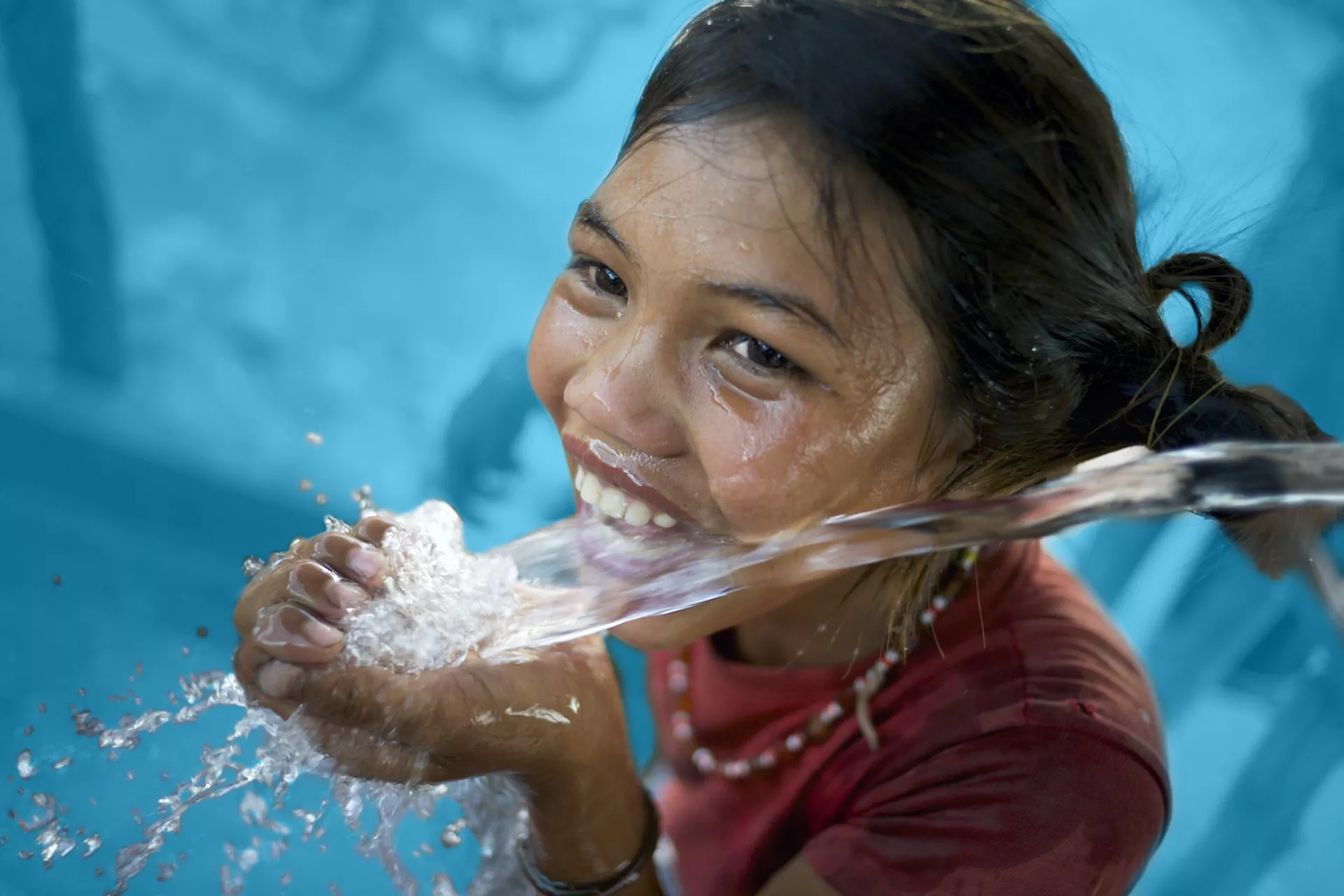Water, Sanitation & Hygiene and Climate Change Resilience
Safe water, sanitation and good hygiene practices

- Available in:
- English
- ລາວ
Challenges
Drinking water in Lao PDR can be contaminated with harmful chemicals and human waste, causing a variety of health issues. UNICEF works in Lao PDR to help ensure children and families in homes and schools have access to clean water and sanitation facilities.
Many rural communities are unaware of appropriate sanitation and hygiene practices. Approximately 24% of the population practice open defecation, and only 28% of children’s faeces are disposed of safely.

Strikingly, only 66% of the 8,857 primary schools have both water supply and latrine facilities (EMIS, 2017). This adversely affects the enrolment, attendance, retention rates and learning achievements, in particular for girls and children living in rural areas, where school facilities are often poor.
Solutions

UNICEF’s WASH and Climate Change Resilience programme supports Lao PDR in its efforts to achieve the Sustainable Development Goals (SDGs), targeting specifically the most disadvantaged children and their families and ensuring they have equitable access to and use of sustainable improved source of water and basic sanitation facilities.
UNICEF also promotes good hygiene behaviours and works with the Ministry of Education and Sports to promote daily hygiene practice in primary and pre-primary schools by creating an enabling environment for behaviour change with students’ participation. Furthermore, the Ministry of Education and Sports is currently developing WASH in Schools (WinS) national standards with UNICEF’s support.
UNICEF also works towards supporting communities to improve sanitation and eliminate open defecation, and promote handwashing and water safety planning. Along with the Ministry of Health, UNICEF is testing a new approach called ‘District-Wide Approach for Elimination of Open Defecation in Borikhamxay Province’. So far, 3 districts within this province have been declared Open-Defecation Free (ODF). By 2020, it is expected that the entire province will be declared ODF. Thanks to this model, UNICEF and the Government of Lao PDR expect to accelerate sanitation coverage, stop open defecation and gradually climb the sanitation ladder.
